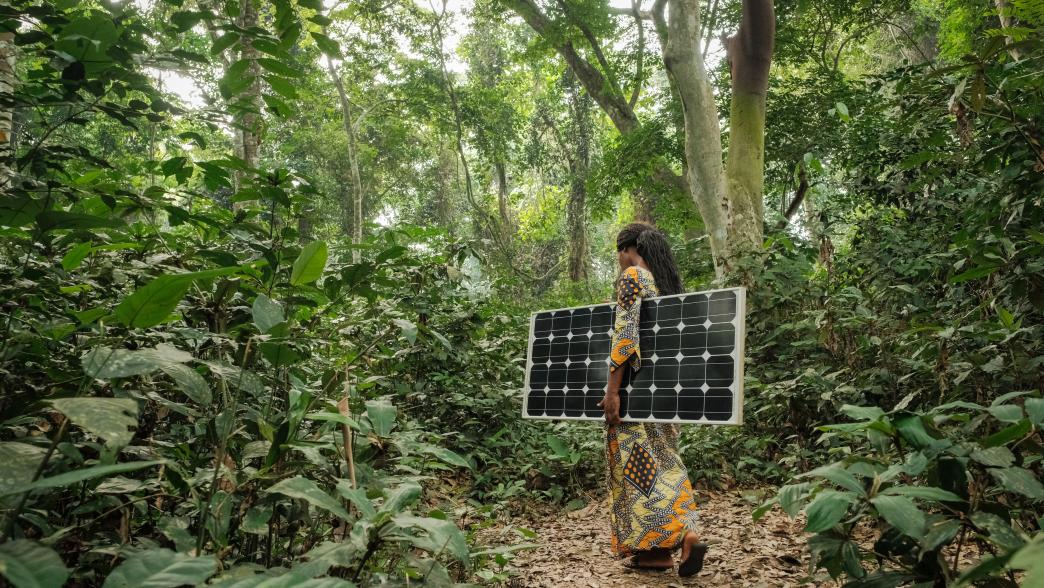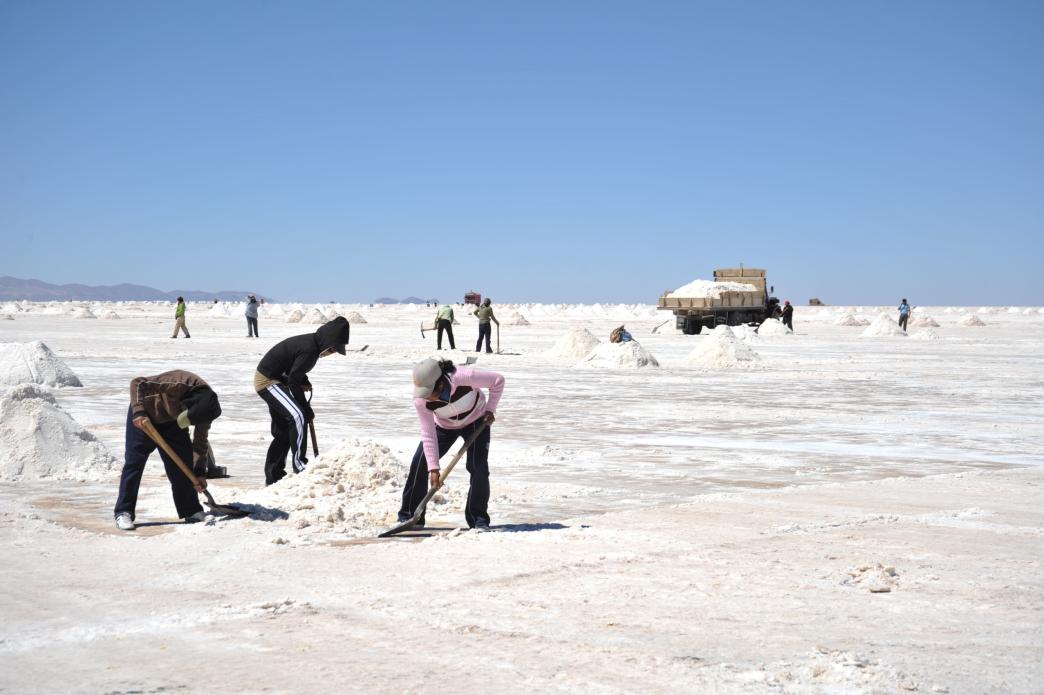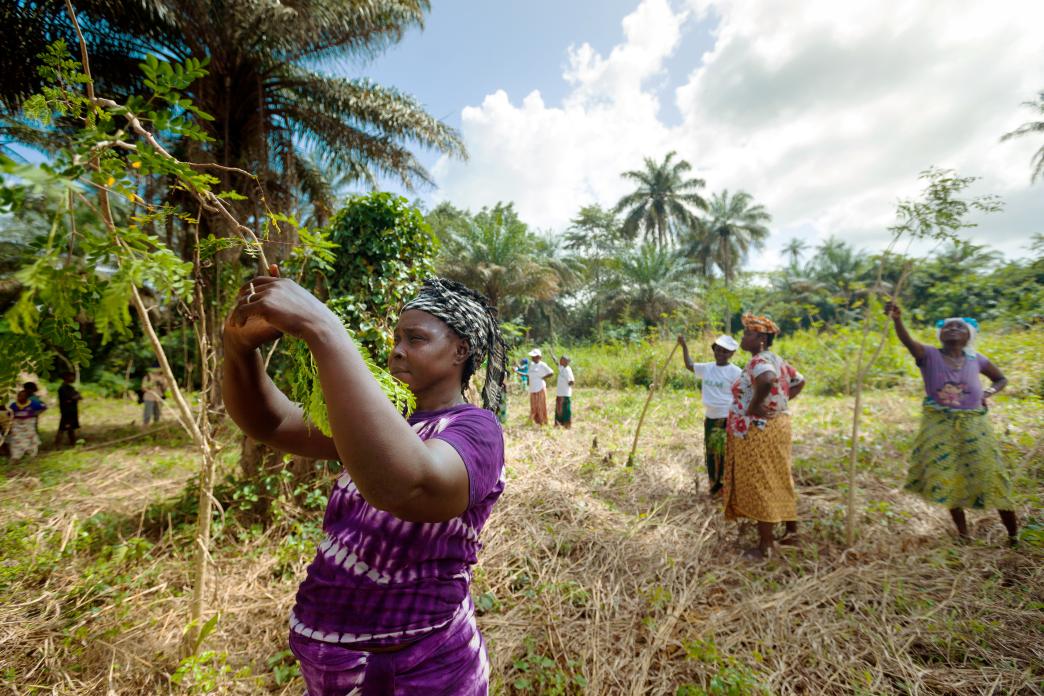
NRGI in 2022: Facing the Future
In 2022, NRGI will intensify its support to an equitable, sustainable and beneficial energy transition. We will push the global climate action dialogue to recognize the unique challenges faced by resource-rich developing countries, where we will grow a transition focus in our programs both longstanding and new.
To enable these strategic and programmatic pivots we must ensure that the organization is also fit for purpose. We will strengthen NRGI by further investing in strategic communications, and internal and external capacity development, and reinvigorating our approaches to grant-making and partnerships. Deepening diversity, equity and inclusion will be at the heart of our policies, practices and programming.
Focusing on an equitable and beneficial energy transition
NRGI will work to ensure that demand for critical minerals generates sustainable benefits for citizens in producing countries. We will advocate for increased focus on corruption and governance in global supply-chain and national reform efforts. We will identify the leading corruption risks facing the critical minerals sector, and prioritize associated anticorruption measures, leveraging our work on beneficial ownership screening, use of intermediaries and procurement guidelines. We will support dialogue and generate analysis with partners within producer countries to improve governance of cobalt, lithium, and other critical minerals. We will further develop and apply our expertise on economic linkages, value chain development, licensing, fiscal regimes and state-owned enterprise governance as they apply to the rapidly changing markets for these minerals, adapting cross-cutting research to live national policy debates.
We will ensure that policy makers in fossil fuel-producing developing countries take decisions that reflect citizens’ long-term development needs and advance energy transition plans. Responding to demand, we will strengthen the movement for accountability amid the energy transition. As we did in the early years of the extractive industries governance movement, in 2022 NRGI will build a suite of capacity development tools to enhance the knowledge and strategic foundations of civil society actors and government officials contending with new realities of the climate crisis and economic impacts of the pandemic.
We will build on our field-leading work on the risks that national oil company (NOC) investments pose to their countries’ economic sustainability and their impact on global climate objectives. At the global level, we will work with climate and resource governance advocacy organizations to shape climate risk, environmental, social and Ggvernance factors (ESG), sustainability and transparency standards. In some countries, such as Ghana and Uganda, our support to analysis and advocacy by national actors to reduce NOC risk-taking will inform current policy decisions in 2022. In other countries, including Mexico and Tanzania, we will work with partners to begin to build constituencies for NOC reform over the longer term, conducting analysis to frame public debates around priorities and place the importance of NOC reform more centrally on domestic political agendas.
And we will leverage our analytical framework to help civil society and governments interrogate plans, policies, and investment choices around forward linkages from natural gas. In 2022, we will further hone the framework, and use it to spark dialogue around gas-to-power policies and ambitions in Senegal, Ghana, Peru and Nigeria, and around Lebanon’s domestic energy future.
We will also contribute to emerging areas of debate, building on past commentary and events, to advocate for a more equitable transition and to explore whether and how NRGI can support renewables governance.
Revamping our country programs
With NRGI’s prioritization of energy transition and Indonesia’s regional importance, we will re-engage in the country in 2022. Using the Resource Governance Index methodology, we will assess Indonesia’s extractive industries to prioritize issues for further research and engagement, including working with partners exploring just transition in the coal industry.
We are re-establishing our presence in Nigeria, shifting focus to the country’s economic future beyond oil. We are establishing new partnerships and have re-engaged with key partners from early incarnations of the program. We are focusing on select instruments of reform: national oil and gas policies, the Gas Master Plan, and the Petroleum Industry Act. We aim to build awareness and momentum by working with allies to ensure that support and planning for a post-oil economy is on the 2023 national election agenda.
NRGI has offered analysis and Resource Governance Index assessments, assisting state-owned companies in the improvement of their transparency and accountability practices, and supporting civil society organizations and oversight actors to monitor the sector.
Following the launch of our Senegal country program last year, we are supporting ongoing reforms of the country’s institutional and regulatory frameworks for the extractive sector, ranging from an overhaul of its participation in the EITI process, design of a new petroleum code and local content law, revision of its mining code, and the finalization of an oil and gas revenue management law. NRGI has offered analysis and Resource Governance Index assessments, assisting state-owned companies in the improvement of their transparency and accountability practices, and supporting civil society organizations and oversight actors to monitor the sector.
We will continue adapting and evolving our work in other NRGI countries of engagement, including Colombia, DRC, Mexico, Mongolia, Guinea, Peru, Tanzania, Tunisia, and Uganda.
Expanding our frontiers
Responding to demands and evolutions in the field requires continual learning and evolution of our work.
In 2022, we will build on our recently concluded work in partnership with the World Resources Institute on gender and extractives. We will explore how NRGI can actively address the gender imbalances in the natural resource sector, aligning with NRGI’s commitment to diversity, equity and inclusion.
We are seeing growing demand on subnational resource revenue sharing, policy makers and civil society counterparts to support improvements in the design and monitoring of subnational revenue sharing systems. We will determine whether to deepen our engagement and renew our expertise in this area.
We will also explore the future of our work with investors and how we leverage corporate power to advance resource governance aims.
After two whirlwind couple years of adaptation, transition, and uncertainty, we now find ourselves grounded and ready to face the future. Though strategic evolutions remain, we have newfound clarity on our contribution to the energy transition and how to seize political openings. We are at the ready to help people in resource-rich countries to face the future.
Top photo by Axel Fassio/CIFOR for Flickr
Middle photo by Free Wind 2014 for Shutterstock
Bottom photo by Joe Saade/UN Women for Flickr
NRGI envisions a world where natural resources enable fair, prosperous and sustainable societies, instead of undermining them.
Authors

Suneeta Kaimal
President and Chief Executive Officer


